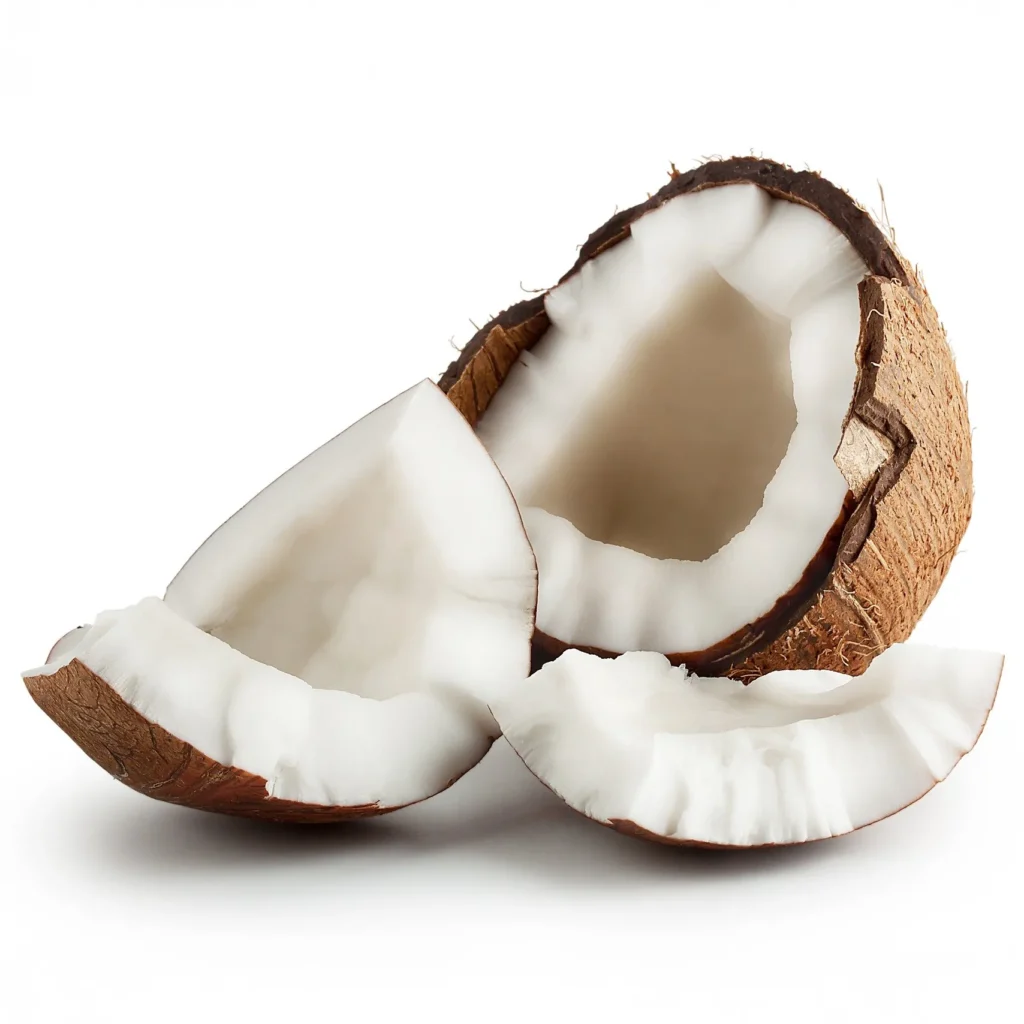№ 5 Coconut Oil
COCONUT
OIL

Remix Ranking
#5
MUFAs
1g
Smoke Point
350°F
Coconut oil is made by pressing the oil out of dried coconut meat, either through wet-milling (virgin) or dry-milling (refined) processes. Coconut oil is high in natural saturated fats, containing 92 percent saturated fat. Roughly 66% of coconut oil’s saturated fats come from medium-chain triglycerides (MCTs), primarily lauric acid (C12), caprylic acid (C8), and capric acid (C10). MCTs are smaller in molecular weight, making them easier for our body to metabolize directly in the liver for quick energy and less likely to be stored as fat.
Both unrefined and refined coconut oils have the same nutritional benefits, though virgin coconut oil retains more antioxidants and phenolic compounds. Coconut oil has antimicrobial and antiviral properties that come from its lauric acid content. When consumed, lauric acid is converted to monolaurin, which may help your body fight off pathogens, bacteria, and viruses. Studies suggest monolaurin can disrupt the lipid membranes of harmful microorganisms.
Additionally, coconut oil contains small amounts of vitamin E and K, and its unique fatty acid profile may support brain health and cognitive function through ketone production.
Even though the saturated fat of coconut oil is mainly from MCTs, coconut oil ranks #5 because of the overall amount of saturated fat.
Coconut Oil
Buy
Coconut oil helps our body absorb fat-soluble vitamins and it also destroys bad bacteria, viruses and fungi.